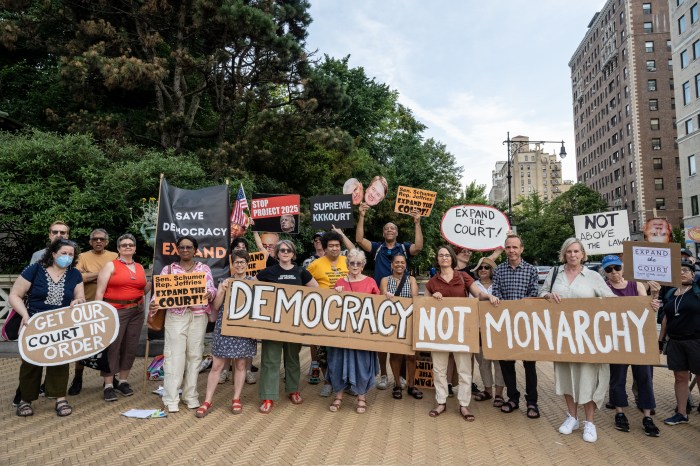A city plan to free up parking spaces — by charging more at meters during prime times — looks like it’s coming to Park Slope.
The Department of Transportation is studying whether parking-starved Fifth and Seventh avenues would actually benefit from the initiative, called “Park Smart.”
The program raises meter rates during high-demand periods in hopes of creating more spaces by encouraging people to park “no longer than necessary,” according to the city.
It makes sense that planners are studying parking patters in the Slope, where researchers once found that 45 percent of the drivers clogging Seventh Avenue were simply looking for a place to park.
Some Seventh Avenue merchants doubt the study will make much of an impact on the neighborhood’s teeming shopping strips.
“If people are out, they need to park regardless of the price, so I don’t think raising the price is going to make any difference,” said Joan Yeno, manager of the boutique 4PlayBrooklyn.
The so-called “congestion pricing” for parking meters has long been a dream of activists and some business owners, who say it could create quicker turnover at parking spaces, prevent drivers from hogging meters, and encourage walking and public transportation.
“Parking is a huge problem in Park Slope and a huge contributor to traffic congestion, so it’s definitely something we support,” said Wily Norvell, a spokesman for Transportation Alternatives. “Notching up rates during peak hours definitely has the potential to better manage the existing inventory and ease demand.”
Other business owners say the current situation is so bad that they’re willing to give it a shot.
“The idea of trying to constantly look at things and how they can be made better is really exciting,” said Catherine Bohne, owner of the Community Bookstore on Seventh Avenue.
A similar program currently underway in Manhattan’s West Village has spiked meter rates from $1 to $2 per hour from noon to 4 pm, curbing some of the demand for parking according to Department of Transportation spokesman Scott Gastel.
“We are encouraged by the early results,” Gastel said. “In Park Slope, [the Department of Transportation is] working in close collaboration with the merchants to design a pilot that best fits the neighborhood.”
Neighborhood associations and Community Board 6 will have a chance to weigh in before the city gives it the greenlight, potentially allowing Slope residents to slam the brakes on the parking project before researchers can conduct a more serious six-week study and an intensive six-month pilot program.
Some drivers — who are still coming down from last summer’s suspension of alternate-side-of-the-street parking — were skeptical that increasing meter rates would curb the parking problem.
“If you want to use your car, you’re going to use your car, and the meter is probably your cheapest parking option,” said Sloper Milgred Pando. “It’s definitely less expensive than a parking lot.”
— with Aisha Gawad























